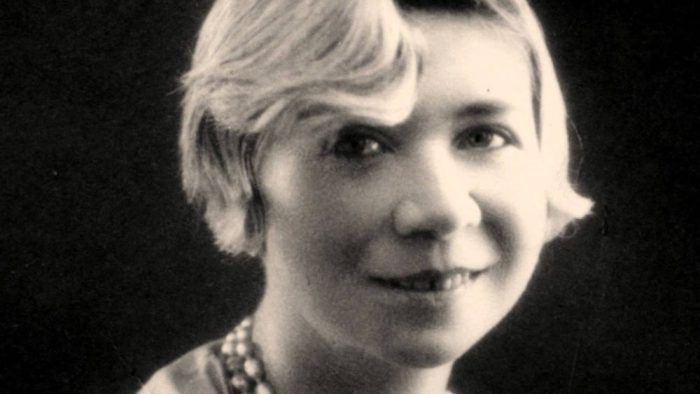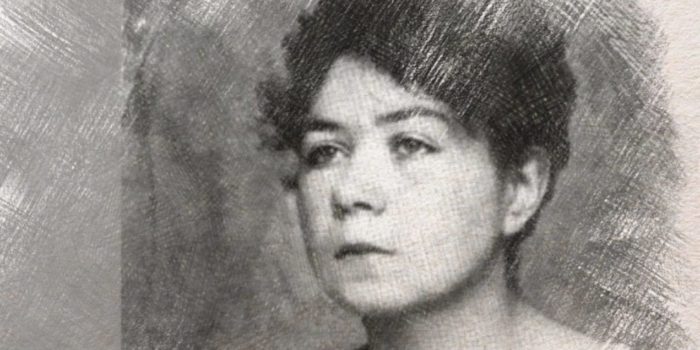Alfonsina storni tú me quieres blanca – Alfonsina Storni’s poem “Tú me quieres blanca” is a powerful and poignant exploration of the societal expectations placed upon women. Storni, a prominent Argentine poet of the early 20th century, uses vivid imagery and symbolism to critique traditional gender roles and advocate for female agency and empowerment.
The poem’s central theme is the tension between the societal pressure to conform to idealized notions of femininity and the desire for authenticity and self-expression. Storni’s speaker rejects the expectations of purity and innocence that are often imposed upon women, asserting her right to embrace her own desires and experiences.
Alfonsina Storni’s Poem “Tú me quieres blanca”
In “Tú me quieres blanca,” Alfonsina Storni challenges societal expectations and explores the complexities of female identity. Through vivid imagery and symbolism, the poem critiques traditional gender roles and celebrates female agency.
Poem’s Central Theme and Message
The poem centers on the speaker’s rejection of the societal pressure to conform to a pure and innocent image. Storni argues that women should be free to express their true selves, even if it means breaking away from societal norms.
Symbolism and Imagery, Alfonsina storni tú me quieres blanca
The poem is rich in symbolism. The color white represents purity and innocence, while the color red symbolizes passion and desire. The speaker’s rejection of the color white signifies her refusal to be confined by societal expectations.
Structure and Form
The poem is written in free verse, with no regular rhyme scheme or meter. This free-form structure reflects the speaker’s own rejection of traditional boundaries and her desire for freedom of expression.
Alfonsina Storni’s Life and Career
Alfonsina Storni was an Argentine poet, journalist, and playwright. She was born in Switzerland in 1892 and moved to Argentina as a child. Storni’s work often explored themes of feminism, sexuality, and personal identity.
Early Life and Influences
Storni’s early life was marked by poverty and struggle. She began writing poetry at a young age and was influenced by the works of Rubén Darío and Amado Nervo.
Literary Career
Storni’s literary career began in earnest in the 1910s. She published several collections of poetry, including “La inquietud del rosal” (1916) and “Ocre” (1925).
Impact of Personal Experiences
Storni’s personal experiences had a profound impact on her writing. She struggled with depression and mental illness, and her work often reflected her own struggles.
The Feminist Perspective in “Tú me quieres blanca”

“Tú me quieres blanca” is a powerful expression of Storni’s feminist views. The poem critiques the traditional gender roles that restrict women’s freedom and expression.
Critique of Gender Roles
Storni rejects the idea that women should be pure and innocent. She argues that women should be free to express their sexuality and desire without judgment.
Female Agency and Empowerment
The poem celebrates female agency and empowerment. The speaker refuses to be defined by others and asserts her right to live her life on her own terms.
Literary Analysis of “Tú me quieres blanca”

“Tú me quieres blanca” is a complex and nuanced poem that has been interpreted in many ways. The poem’s use of symbolism, imagery, and free verse form all contribute to its richness and complexity.
Comparison with Other Works
The poem can be compared to other works by Storni that explore similar themes. For example, “El dulce daño” also explores the complexities of female identity and desire.
Place in Latin American Literature
The poem is considered a classic of Latin American literature. It has been praised for its powerful expression of female empowerment and its challenge to traditional gender roles.
Literary Devices
The poem uses a variety of literary devices, including metaphors, similes, and personification. These devices help to create a vivid and memorable image of the speaker’s struggle for freedom.
Cultural and Historical Context of the Poem

“Tú me quieres blanca” was written in the early 20th century, a time of great social and cultural change. The poem reflects the changing attitudes towards women and the rise of feminism.
Avant-Garde Movement
Storni was part of the avant-garde movement, which rejected traditional artistic conventions. The poem’s free verse form and experimental use of language reflect the avant-garde’s commitment to innovation.
Changing Attitudes Towards Women
The poem reflects the changing attitudes towards women in the early 20th century. Women were beginning to demand more rights and freedoms, and the poem’s celebration of female agency was a part of this movement.
Adaptations and Interpretations of “Tú me quieres blanca”
“Tú me quieres blanca” has been adapted into a variety of other art forms, including music, dance, and visual art. The poem has also been interpreted by many different critics and scholars.
Adaptations
The poem has been adapted into a number of songs, including a famous version by Mercedes Sosa. It has also been adapted into a dance piece by the choreographer Ana Sokolow.
Interpretations
The poem has been interpreted in many different ways. Some critics see it as a feminist manifesto, while others see it as a more personal exploration of female identity.
Resonance with Audiences Today
The poem’s message of female empowerment and its challenge to traditional gender roles still resonates with audiences today. The poem continues to be a powerful expression of the struggle for female liberation.
Expert Answers: Alfonsina Storni Tú Me Quieres Blanca
What is the main theme of “Tú me quieres blanca”?
The main theme of “Tú me quieres blanca” is the tension between societal expectations placed upon women and the desire for authenticity and self-expression.
How does Storni critique traditional gender roles in the poem?
Storni critiques traditional gender roles by rejecting the expectations of purity and innocence that are often imposed upon women. She asserts her right to embrace her own desires and experiences.
What is the significance of the color white in the poem?
The color white in the poem symbolizes the idealized notions of femininity that Storni’s speaker rejects. It represents purity, innocence, and conformity.